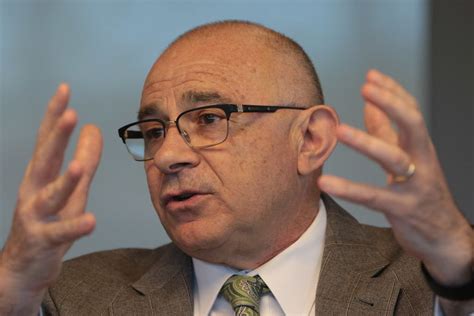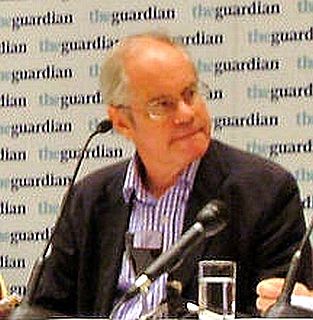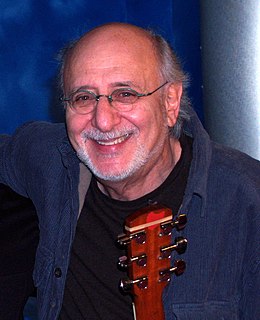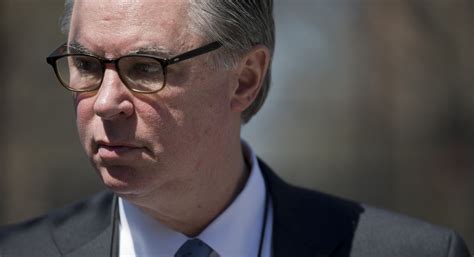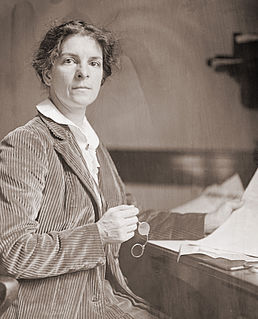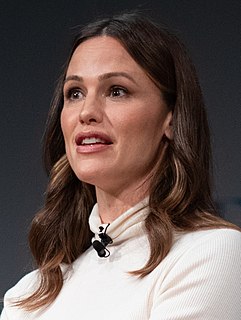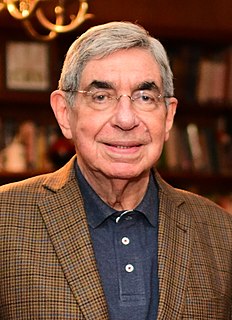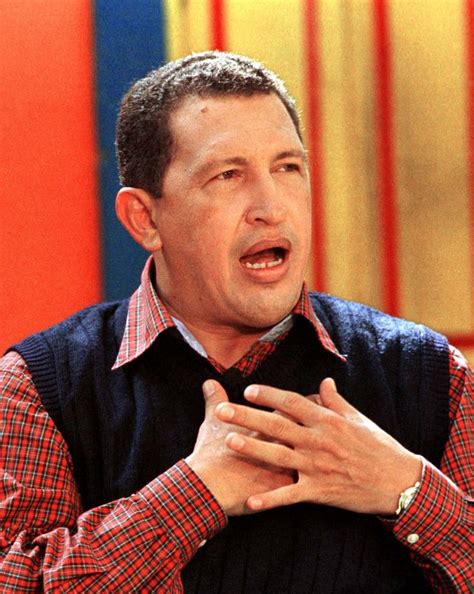Top 1200 Poverty Quotes & Sayings - Page 6
Explore popular Poverty quotes.
Last updated on December 12, 2024.
Many people believe in eliminating gaps and eliminating poverty. They don't realize that in some sense those two things are antithetical. If you were to double everyone's income, or if everyone's income were doubled naturally over the course of time, then you would reduce poverty significantly but you would have also increased the gap.
Now, you might say – “But why should we pay people for doing what they’re supposed to do?” It’s a fair question – but think of it this way: Every other anti-poverty program that’s been tried has failed to get the national poverty rate below 11 percent... Why shouldn’t we experiment with a program built around the one strategy that has proven time and again to work wonders – capitalism?
My vision for the future? Two things: to make credit a human right so that each individual human being will have the opportunity to take loans and implement his or her ideas so that self-exploration becomes possible. And second: that it will lead to a world where nobody has to suffer from poverty - a world completely free from poverty.
People can change their own lives, provided they have the right kind of institutional support. They're not asking for charity, charity is no solution to poverty. Poverty is the creation of opportunities like everybody else has, not the poor people, so bring them to the poor people, so that they can change their lives.
Poor people are bonsai people. There is nothing wrong in their seeds. Simply, society never gave them the base to grow on. All it needs to get the poor people out of poverty for us to create an enabling environment for them. Once the poor can unleash their energy and creativity, poverty will disappear very quickly.
It seems to me that large numbers of people are now paying attention to poverty and that large numbers now understand that blaming the poor and the insecure for being poor and insecure is as unseemly as is schoolyard bullying. In that realization lies hope for a reinvigorated discourse around poverty and inequity in modern-day America.
[A] family with two kids that earns the minimum wage still lives below the poverty line. That's wrong. That's why, since the last time this Congress raised the minimum wage, 19 states have chosen to bump theirs even higher. Tonight, let's declare that in the wealthiest nation on Earth, no one who works full-time should have to live in poverty, and raise the federal minimum wage to $9 an hour.
At the beginning of this marvelous era it was natural to expect, and it was expected, that laborsaving inventions would lighten the toil and improve the condition of the laborer; that the enormous increase in the power of producing wealth would make real poverty a thing of the past... From Progress and Poverty, To those who, seeing the vice and misery that spring from the unequal distribution of wealth and privilege, feel the possibility of a higher social state and would strive for its attainment.
It is important to remember when reading Adam Smith or even when just thinking about Smith that the era that he lived in, we're not talking about poverty in a day when it meant not enough bedrooms for the kids, an old car, a black and white television. We're talking about a whole world where poverty meant not enough to eat.
Polak, a psychiatrist, has applied a behavioral and anthropological approach to alleviating poverty, developed by studying people in their natural surroundings. He argues that there are three mythic solutions to poverty eradication: donations, national economic growth, and big businesses. Instead, he advocates helping the poor earn money through their own efforts of developing low-cost tools that are effective and profitable.
I learned that unless you start working, if you're frozen out of work, you will never learn the habits, the discipline, the values of cooperation and improvement unless you get a job, and that's what statistic show. It's, unless you get a job and keep it, you will not get out of poverty. If you do, you have a very good chance of working out of poverty.
I am Catholic, I was raised Catholic, I am a practicing Catholic. But I say we need to agree to disagree. We have a shared mission around poverty, and I focus on that, because we do a lot with the Catholic Church around poverty alleviation. I'm always looking for: what is the common thread? What do we care about? What do we believe in? We believe in women around the world. We believe in all lives have equal value.
It is easy enough to tell the poor to accept their poverty as Gods will when you yourself have warm clothes and plenty of food and medical care and a roof over your head and no worry about the rent. But if you want them to believe youtry to share some of their poverty and see if you can accept it as Gods will yourself!
When I pick up a person from the street, hungry, I give him a plate of rice, a piece of bread. But a person who is shut out, who feels unwanted, unloved, terrified, the person who has been thrown out of society - that spiritual poverty is much harder to overcome. And abortion, which often follows from contraception, brings a people to be spiritually poor, and that is the worst poverty and the most difficult to overcome.
When we talk about gender pay gaps in the United States, and if you look at women without children, they earn 96 cents for every dollar that a man is earning, while for mothers it is about 76 cents. That's nearly 25 percent less. For single mothers, the situation is even worse. One third of them are living in poverty or just on the edge of poverty. This is an unacceptable situation.
There's no way in which you can ever win a war against terror. As long as there are conditions in many parts of the world that make people desperate: poverty, disease, ignorance, etc. I hope that we will discover soon, that we can survive, only together. We can prosper only together. And I think people are beginning to realize this, that you can't have pockets of prosperity in one part of the world and huge deserts of poverty and deprivation and think you can have a stable, secure world.
During my eleven years as a New York City public school teacher, I saw firsthand the impact that poverty has on the classroom. In low-income neighborhoods like Sunset Park, where I taught, students as young as five years old enter school affected by the stresses often created by poverty: domestic violence, drug abuse, gang activity.
I was born in a very poor family. I used to sell tea in a railway coach as a child. My mother used to wash utensils and do lowly household work in the houses of others to earn a livelihood. I have seen poverty very closely. I have lived in poverty.I decided that I would not live for myself but would live for others.
For Ragamuffins, God's name is Mercy. We see our darkness as a prized possession because it drives us into the heart of God. Without mercy our darkness would plunge us into despair - for some, self-destruction. Time alone with God reveals the unfathomable depths of the poverty of the spirit. We are so poor that even our poverty is not our own: It belongs to the mysterium tremendum of a loving God.
The economic benefits of investing in children have been extensively documented. Investing fully in children today will ensure the well-being and productivity of future generations for decades to come. By contrast, the physical, emotional and intellectual impairment that poverty inflicts on children canmean a lifetime of suffering and want - and a legacy of poverty for the next generation.
The first issue that compelled me was a very strange split between India being highly development scientifically (we were the third biggest scientific manpower in the world then) and yet at the same time struggling with amazing poverty. The linear equation that says that modern science equals progress and the reduction of poverty did not apply to India. It wasn't working.
By the Reagan era, the 'culture of poverty' had become a cornerstone of conservative ideology: poverty was caused not by low wages or a lack of jobs but by bad attitudes and faulty lifestyles. The poor were dissolute, promiscuous, prone to addiction and crime, unable to 'defer gratification' or possibly even set an alarm clock. The last thing they could be trusted with was money.
The obscenities of this country are not girls like you. It is the poverty which is obscene, and the criminal irresponsibility of the leaders who make this poverty a deadening reality. The obscenities in this country are the places of the rich, the new hotels made at the expense of the people, the hospitals where the poor die when they get sick because they don't have the money either for medicines or services. It is only in this light that the real definition of obscenity should be made.
I can't help but react to the painful realities of the two-tiered society we live in, where the signs of poverty and inequity are everywhere. Almost twenty five percent of our children live at or below the poverty line. We expect the no-option life cycle of the poor to be interrupted by the weak social safety net and then wonder why building more jails doesn't solve the problems.
My parents, neither one of them went to college. That wasn't available to them. But, you know, we had a wonderful life. You know, it - you know, we lived in what would now be considered poverty, but, you know, it didn't feel like poverty when I was living it. I had a great time and got a - had a great experience. I went to Catholic school through high school. I had a wonderful education.
Even though it is the case that poverty is linked to AIDS, in the sense that Africa is poor and they have a lot of AIDS, it's not necessarily the case that improving poverty - at least in the short run, that improving exports and improving development - it's not necessarily the case that that's going to lead to a decline in HIV prevalence.
Too often the media assumes that "poverty" is an African American or a Latino issue. Of course, that's nonsense. While a higher percentage of the African American and Latino population does live in poverty as compared to the white population, when overall numbers are looked at, it is clear that people of all races, ethnicities, and colors, are represented amongst America's poor.
Easterly, a celebrated economist, presents one side in what has become an ongoing debate with fellow star-economist Jeffrey Sachs about the role of international aid in global poverty. Easterly argues that existing aid strategies have not and will not reduce poverty, because they don't seriously take into account feedback from those who need the aid and because they perpetuate western colonial tendencies.
The world is fairly studded and strewn with pennies cast broadside by a generous hand. But- and this is the point- who gets excited by a mere penny? But if you cultivate a healthy poverty and simplicity, so that finding a penny will literally make your day, then, since the world is in fact planted in pennies, you have with your poverty bought a lifetime of days.
The World Bank is the monopoly provider of poverty data and, partly due to a leadership change there, the World Bank's reporting has been heavily on the rosy side since about 2000. The Bank's cultivation of an upbeat picture affords a very interesting lesson in statistics and how you can, depending on which numbers you present and how you present them, create a more positive or more negative impression of the evolution of poverty.
In many places, classrooms are overcrowded and curricula are outdated. Most of our qualified teachers are underpaid, and many of our paid teachers are unqualified. So we must give every child a place to sit and a teacher to learn from. Poverty must not be a bar to learning, and learning must offer an escape from poverty.
...I swore I would battle not only for myself but for freedom and opportunity for everything living that wore chains, especially sex chains. It that meant poverty for myself and my boy then poverty we should have to suffer. If it meant social ostracism, if it meant relinquishing the literary success that lay within my grasp, then let the success go.
For if leisure and security were enjoyed by all alike, the great mass of human beings who are normally stupefied by poverty would become literate and would learn to think for themselves; and when once they had done this, they would sooner or later realise that the privileged minority had no function, and they would sweep it away. In the long run, a hierarchical society was only possible on a basis of poverty and ignorance.
Stand up for our sick. Stand up for our veterans. Stand up for the elderly. Protect things like Social Security. Stop allowing people to stick their hands in the cookie jar. Create opportunities for people who live in poverty to elevate themselves out of poverty with a hand up, not a hand out. That's what being a Democrat is!
Man's birth is a lottery; it may be in the pleasant home of ease and affluence, or in the hut of poverty; in either case it may be a stain or an honor. If he is born in poverty, and his future life throws a lustre over an humble birth, the reward will not only be great, but his name will stand higher on the roll of honor and virtue, than he who can only boast of his proud descent.
As the data from the past decade clarify, there is no evidence that poverty causes crime but a great deal of evidence that crime causes poverty. By aligning themselves against the police, against commonsense tactics like stop and frisk, against metal detectors in public housing, against swift and certain punishment, and for a broad array of legal protections for accused criminals, liberals helped to aggrieve the lives of the poor and society as a whole.
You [Jill Stein] also believe in a full employment policy that was the majority Democratic Party policy in 1946. They actually passed a law to that effect. You want to end poverty and when people see how relatively easy it is to end poverty. And one way is to increase the minimum wage: catch up; it's been frozen for so many years.
The service of India means the service of those teeming millions steeped in poverty, ignorance and disease. To see that in my lifetime we can soften these harsh edges of extreme poverty and unleash a new economic and social revolution which will bring out the latent creativity and entrepreneurial spirit of our people, I think that's what I feel, I think.
Labour ministers often look puzzled when reports show that Britain has one of the lowest levels of social mobility in the developed world. They just don't get it. They see poverty, inequality, fairness, as all about income. For the past 12 years, they have relied on tax credits to solve this. But tax credits do not solve poverty: they mask it.
The best way to perpetuate poverty is spending on arms, and poverty itself is a form of violence. The wealthy industrialized countries have been too slow to recognize this. I hope that in this new century and new millennium, the world will learn that if you want peace, you must prepare for peace, plan for peace, work for it, and comply with its dictates. Lasting peace will never be achieved with the instruments of war.
I learned this, at least, by my experiment; that if one advances confidently in the direction of his dreams, and endeavors to live the life which he has imagined, he will meet with a success unexpected in common hours. . . . In proportion as he simplifies his life, the laws of the universe will appear less complex, and solitude will not be solitude, nor poverty poverty, nor weakness weakness.
Chile has done a lot to rid itself of poverty, especially extreme poverty, since the return to democracy. But we still have a ways to go toward greater equity. This country does not have a neoliberal economic model anymore. We have put in place a lot of policies that will ensure that economic growth goes hand in hand with social justice.
Throughout history, poverty is the normal condition of man. Advances which permit this norm to be exceeded — here and there, now and then — are the work of an extremely small minority, frequently despised, often condemned, and almost always opposed by all right-thinking people. Whenever this tiny minority is kept from creating, or (as sometimes happens) is driven out of a society, the people then slip back into abject poverty. This is known as "bad luck.
The world's most 'primitive' people have few possessions, but they are not poor. Poverty is not a certain small amount of goods, nor is it just a relation between means and ends; above all it is a relation between people. Poverty is a social status. As such it is the invention of civilization. It has grown with civilization, at once as an invidious distinction between classes and more importantly as a tributary relation.
If we are looking for one single action which will enable the poor to overcome their poverty, I would go for credit. Money is power. I have been arguing that credit should be accepted as a human right. If we can come up with a system which allows everybody access to credit while ensuring excellent repayment - I can give you a guarantee that poverty will not last long.
The notion about education has changed and that now it’s sort of much more aligned with, “Well, schools can’t combat poverty. We can’t possibly expect schools to do the work to overcome poverty.” I think that notion which has changed over the last few decades is part, not all, but part of what is maybe leading to people feeling less of a sense of possibility.
Seventy-five percent of our energy around the earth is being poured into war efforts. Are we servants of death and destruction? This 75 percent of energy could be poured into life, into the service of life-and there will be laughter, and there will be greater health, and there will be more wealth, more food. There will be no poverty. There is no need for poverty to exist at all.
He [Hugo Chavez] put poverty at the heart of political debate. Rightly so, given the country's immense inequality and poverty. He invested heavily in social programs such as literacy, health clinics, and education. He promoted Venezuela's indigenous culture and urged compatriots to take pride in its pre-Columbian history. He called time on the US treating Latin America as its backyard.
Lent is a fitting time for self-denial; we would do well to ask ourselves what we can give up in order to help and enrich others by our own poverty. Let us not forget that real poverty hurts: no self-denial is real without this dimension of penance. I distrust a charity that costs nothing and does not hurt.
...If peace were the goal of today's intellectuals, a failure of that magnitude -- and the evidence of unspeakable suffering on so large a scale -- would make them pause and check their statist premises. Instead, blind to everything but their hatred for capitalism, they are now asserting that 'poverty breeds wars' ... But the question is: What breeds poverty? If you look a the world of today and if you look back at history, you will see the answer: the degree of a country's freedom is the degree of its prosperity.
The form of law which I propose would be as follows: In a state which is desirous of being saved from the greatest of all plagues-not faction, but rather distraction-there should exist among the citizens neither extreme poverty nor, again, excessive wealth, for both are productive of great evil . . . Now the legislator should determine what is to be the limit of poverty or of wealth.
With my union project in my hand, from town to town, from one end of France to the other, to talk to the workers who do not know how to read and to those who do not have the time to read....I will go find them in their workshops; in their garrets and even, if needed, in their taverns, and there, face to face with their poverty, I will compel them, in spite of themselves, to escape from this frightful poverty which is degrading and killing them.

















